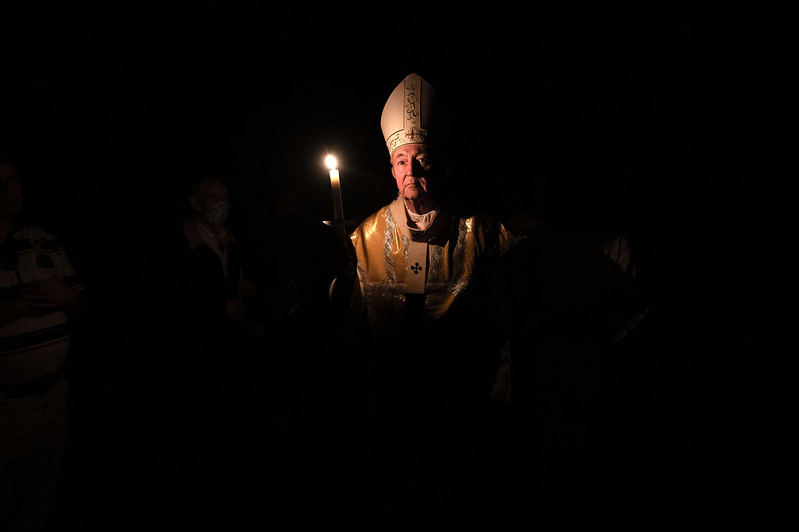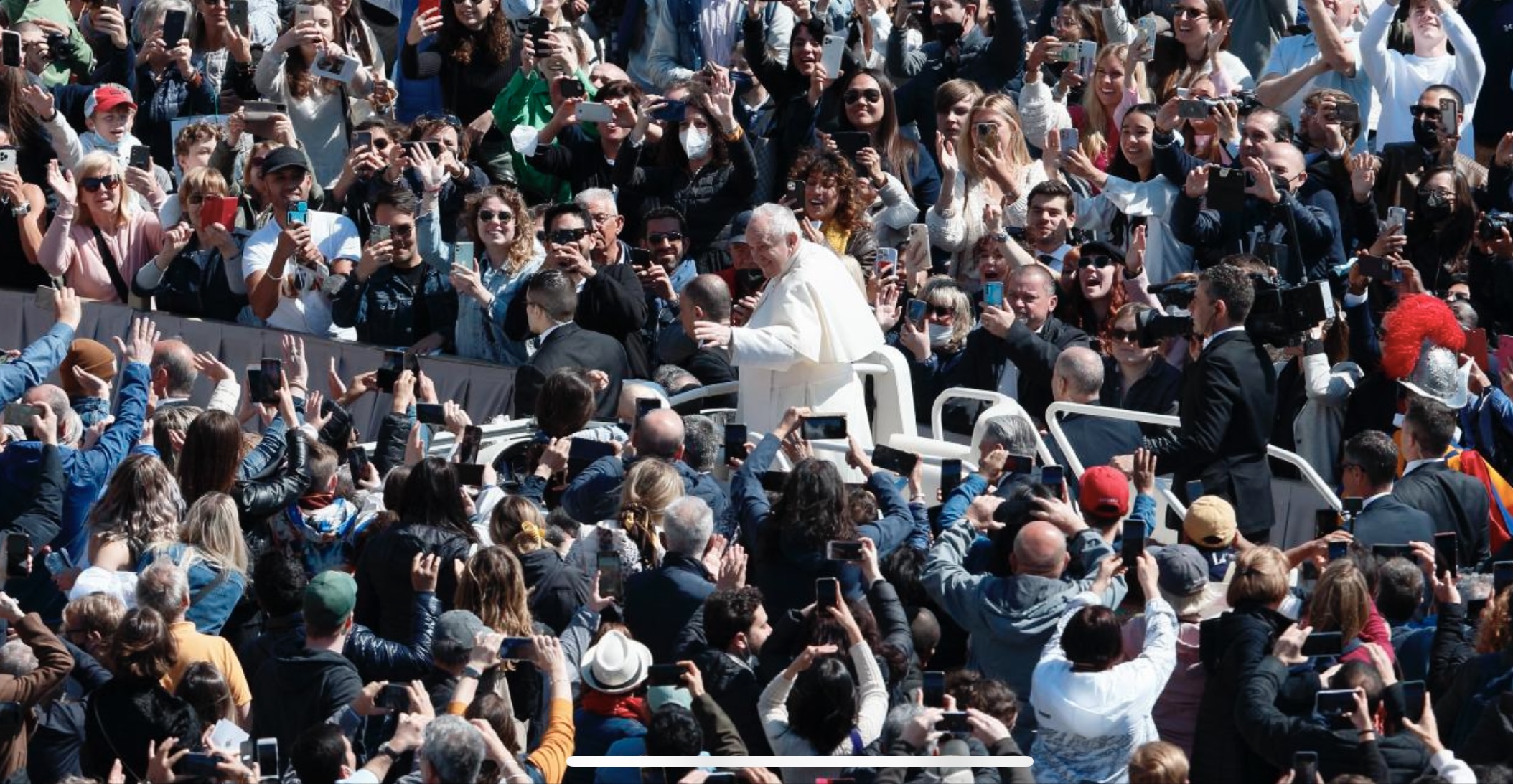Pope Francis says the future of humanity is at risk unless the world renounces war as he pleaded with world leaders to listen to the people’s pleas for peace in Ukraine.
The 85-year-old Pope made his remarks during his “Urbi et Orbi” (to the city and the world”) Easter Sunday message and blessing. Francis, who has mobility problems due to severe leg pain, stood at the beginning and the end of his address but was forced to sit down for most of the time as he spoke from the balcony overlooking St Peter’s Square.
“Let there be a decision for peace,” the Pope told the crowd of an estimated 100,000 people, the first time crowds were able to gather in the square in large numbers at Easter since 2019. “May there be an end to the flexing of muscles while people are suffering. Please, let us not get used to war! Let us all commit ourselves to imploring peace, from our balconies and in our streets! May the leaders of nations hear people’s plea for peace.”
Francis quoted the 1955 Russell-Einstein Manifesto issued in London by the British philosopher Bertrand Russell and backed by Albert Einstein during the Cold War. “Shall we put an end to the human race, or shall mankind renounce war?” the Pope said. The manifesto was an appeal by scientists to world leaders on the dangers posed by nuclear weapons and the need to peacefully resolve conflicts.
Ukraine, the Pope said, has been “dragged” into a “cruel and senseless war” an implicit criticism of Russia. While in Malta earlier this month, Francis implicitly criticised President Vladimir Putin when he talked about the war in Ukraine as being caused by some “potentate" who was fomenting conflict for national interests. And while in Malta the Pope said Russia’s invasion of Ukraine could see an “enlarged Cold War” that threatens future generations.
The Pope said: “I hold in my heart all the many Ukrainian victims, the millions of refugees and internally displaced persons, the divided families, the elderly left to themselves, the lives broken and the cities razed to the ground.”
The “Easter of War”, Francis admitted, makes it difficult to “believe that Jesus is truly risen, that he has truly triumphed over death,” and leaves people wondering if it is an illusion.
“No, it is not an illusion!” the Pope said. "Today, more than ever, we hear echoing the Easter proclamation so dear to the Christian East: ‘Christ is risen! He is truly risen! Today, more than ever, we need him, at the end of a Lent that has seemed endless.”
The sun shone as the Pope spoke while the square he looked down on was bedecked by tens of thousands of flowers donated by the Netherlands.
Only Christ, Francis stressed, can bring peace as “he bears wounds…our wounds” which have been inflicted by “our fratricidal hatred.” These wounds are also “the indelible seal of his love for us, a perennial act of intercession, so that the heavenly Father, in seeing them, will have mercy upon us and upon the whole world.”
He added: “the wounds on the body of the risen Jesus are the sign of the battle he fought and won for us, won with the weapons of love, so that we might have peace and remain in peace.”
Despite the pain of war, the Pope said it was encouraging to see the welcome offered to refugees from Ukraine across Europe, adding that he hoped these “numerous acts of charity become a blessing for our societies, at times debased by selfishness and individualism, and help to make them welcoming to all.”
He also said the conflict in Europe should make the world more aware of other wars and problems across the world, make a specific reference to Africa. Francis called for reconciliation in the Holy Land, and among the people of Lebanon, Syria, Iraq, Libya, Myanmar, and the Democratic Republic of Congo. He also talked about the war in Yemen which he said is a conflict “forgotten by all.”
“May we be won over by the peace of Christ! Peace is possible; peace is a duty; peace is everyone’s primary responsibility,” Francis concluded before giving his blessing.



 Loading ...
Loading ...